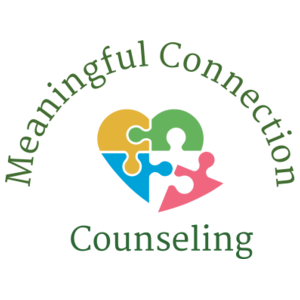
Trauma can manifest in various forms, leaving a lasting imprint on the individual’s life. One of the most challenging aspects of trauma is when it is complex, or C-PTSD. C-PTSD goes beyond singular events and is often a build-up of multiple adversities throughout life or repeated exposure to certain traumatic experiences.
The purpose of this blog post is to discuss what complex trauma is by going over its definition, causes, and most importantly, how to begin healing.
What Is Complex Trauma?
Complex trauma is not a single event but rather a pattern of prolonged adversity, often occurring within relationships where trust and safety should be inherent. This type of trauma typically originates in early childhood, involving chronic exposure to stressful situations such as abuse, neglect, or witnessing domestic violence. Unlike simple trauma, which results from a specific incident, complex trauma is pervasive and has a cumulative effect, leaving individuals grappling with a myriad of emotional and psychological challenges.
Causes of Complex Trauma
Childhood Adversity
At the heart of complex trauma is often a tumultuous childhood. Children are vulnerable, and when exposed to chronic adversity such as physical, emotional, or sexual abuse, neglect, or the absence of a secure attachment figure, the foundation for complex trauma is laid. The developing brain may adapt to a constant state of stress, shaping how individuals perceive and respond to the world.
Interpersonal Relationships
Complex trauma frequently occurs within the context of relationships – the very spaces where individuals should find solace and support. Betrayal, abandonment, or consistent invalidation within relationships can contribute to the complexity of trauma. The impact is profound, affecting one’s ability to form healthy connections and trust others.
Institutional and Societal Factors
Beyond individual relationships, societal and institutional factors can contribute to complex trauma. Exposure to systemic oppression, discrimination, or violence can compound the effects of early adversity, exacerbating feelings of powerlessness and hopelessness.
The Impact of Complex Trauma
Emotional Dysregulation
Complex trauma often results in heightened emotional sensitivity and difficulty regulating emotions. Individuals may struggle with intense mood swings, anxiety, depression, and feelings of emptiness, making it challenging to navigate daily life.
Dysfunctional Coping Mechanisms
In an attempt to cope with overwhelming emotions, individuals with complex trauma may develop unhealthy coping mechanisms which may include substance abuse, self-harm, or risky behaviors. These strategies, while providing temporary relief, can further entrench the cycle of trauma.
Impaired Self-Identity and Relationships
The sense of self and one’s ability to form and maintain healthy relationships may be profoundly affected by complex trauma. Individuals may grapple with a fragmented sense of identity, difficulty establishing boundaries, and challenges in forming connections based on trust and intimacy.
How to Begin Healing From Complex Trauma

Building Supportive Relationships
Developing and maintaining healthy relationships is fundamental to healing from complex trauma. Surrounding oneself with a supportive network of friends, family, or support groups can provide a sense of belonging and validation.
Self-Care Practices
Engaging in self-care activities, such as mindfulness, meditation, and physical exercise, can help individuals regulate their emotions and foster a sense of empowerment. Taking small, intentional steps toward self-nurturing can contribute to the healing journey.
Therapy
When you unravel the layers of complex trauma, it becomes clear that it has a profound impact on a person’s mental health and overall well-being. Understanding its roots in early childhood experiences is a crucial step for individuals who are impacted by this type of trauma.
Whether trauma occurred because of a singular event or repeated exposure to stressful situations, you can find healing. As a licensed therapist, I am here to support you and guide you throughout the process of healing. Reach out to learn more about trauma therapy when you are ready.
